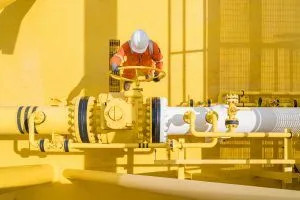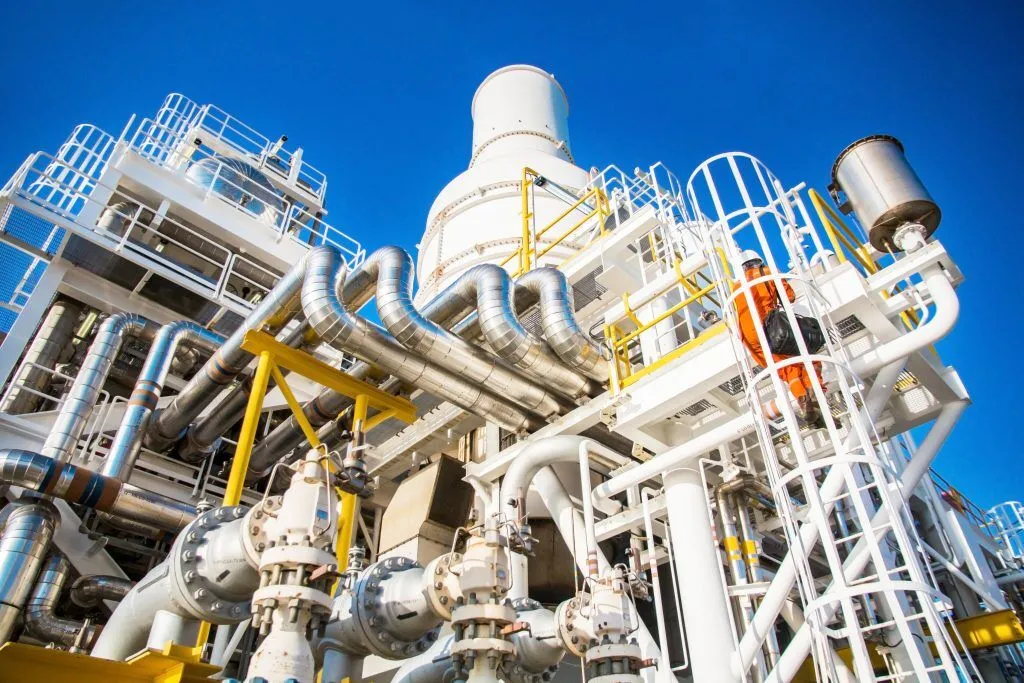What do Riggers do Offshore?
WHAT DO RIGGERS DO OFFSHORE?
What do riggers do offshore? If the first word that comes to mind when you think of the words ‘riggers’ or ‘rigs’ is ‘offshore’, you’re on the right track.
As we’ve covered in many of our blogs, riggers perform many different job duties, from stage rigging for plays to positions on construction projects that help move different equipment and materials. Although you’ve likely heard the term ‘offshore rigger’ or ‘rigging’ before, you still might not know everything about this job and its duties.
Read on to and learn more about an offshore rigger’s job duties, responsibilities of the role and more about Hercules SLR’s work offshore.
WHAT DO RIGGERS DO OFFSHORE? WHAT THE OFFSHORE INDUSTRY IS
When you hear the term ‘offshore’, it usually refers to the oil & gas and wind energy industries. In the oil and gas industries, a vessel is installed in specific areas to drill for oil or gas. This is important, since gas reservoirs can be found anywhere – including the ocean. To drill offshore, a drilling rig and pipe is installed to access reserves underground. This rig can be on a floating or fixed platform.
So, what do riggers do offshore? Offshore riggers’ manage and monitor all the different parts of a drilling vessel’s operation. To operate rigs, worker’s are required to operate the drilling, attach and operate machinery and deconstruct the machinery when drilling is complete. They also make sure that oil flows through the pipes properly and that oil is transported to the tanker efficiently, and the pipes don’t burst. A rigger is also responsible to make sure safety rules and regulations are followed – remember, emergency responders can’t access an offshore rig quickly or easily, so it’s essential that risk is minimized.
A person who performs work on the offshore rig is often called a rigger, or a rig technician and there can be different positions, or levels of technicians who perform different duties based on their training, specialties or seniority.
There are often positions available that range from entry-level duties to roles that require experience or more specialized skill, like a derrickhand or welder, for example. Working hours on an offshore rig are much different than your typical 9-5 gigs – offshore work is usually accomplished in two-week (or longer) chunks. Often, riggers will work for a few weeks offshore, on the rig, and then will often have a few weeks off, back on-shore. Offshore rigging takes you away from land (if you didn’t catch that by the word ‘offshore‘), and as we mentioned, often for big chunks of time.
WHAT DO RIGGERS DO OFFSHORE? HOW HERCULES SLR SERVES OFFSHORE INDUSTRY
INSPECTIONS, TESTING & REPAIRS
Hercules SLR has different technicians that work on offshore rigs with different issues, like broken equipment or machinery on the rig. Inspectors and other technicians will travel to offshore destinations to inspect, repair and if needed, certify equipment. This can happen when equipment fails or other issues are found that threaten safety – Hercules SLR can fix the issue until it’s safe to resume work.
Examples of inspection and repair issues Hercules SLR’s called to work on include:
- Container inspections
- Sling/equipment failure
- Non-destructive testing,
- Equipment failure
- Incidents investigation (ex. A dropped load – dropped loads often cause injury, and can be fatal).
- Fall protection products, inspections, repairs & trainings – a fall protection system is required when working at heights of 6-feet or more, so as you can imagine having a fall arrest system is crucial).
Since an offshore rig is isolated and far from everyday amenities, it’s usually appropriate to have a rig technician for the entire project to ensure things run smoothly. Offshore rigging presents many safety risks, and it’s important to prevent and reduce any unnecessary harm to workers and the environment by making sure the rig runs properly.
RIGGING
Hercules SLR’s rigger’s will come to your offshore installation or project for nearly anything the operation needs. We can:
- Move or lift difficult loads to or from the offshore rig
- Provide you with lifting equipment or equipment rentals for lifting/moving
- Identify methods or equipment needed to move particular loads
- Create custom-rigging solutions to move awkward or difficult loads
- Provide riggers’ for your offshore installation
TRAINING
The Hercules’ Training Academy offers different courses that are useful in offshore applications, like Fundamentals of Rigging with Practical.
Hercules SLR’s training courses can be completed at the Hercules Training Academy, or, we can come to your offshore installation. Our Offshore Rigger Banksman course teaches students the fundamental skills to rig, lift, sling & release loads in an offshore environment. The course also includes:
- Regulations, standards and associations
- Risk management
- Rigging plan
- Calculating load weight, centre of gravity and sling angles
- Load control
- Rigging equipment how-to’s (slings, hitches, hardware and hooks)
- Pre-use inspection
- Duties and responsibilities of the rigger and banksman
- Communications (radio and hand signals)
- Personnel transfer
- Container inspection
- Practical application of the equipment and principles
WHAT DO RIGGERS DO OFFSHORE? SAFETY TIPS FOR THE RIG
Safety is very important on offshore rigs – not only to prevent injury, but to avoid costly delays in work. As we mentioned, making sure equipment is taken care of is essential, especially for a safe offshore operation. Not only does this make sure the drilling rig operates properly, but will help keep workers safe by preventing a hazard caused by equipment failure.
We can’t stress the importance of safety on the rigs – more safety tips for work on offshore rigs are:
- House-keeping: Slippery surfaces lead to falls. Using proper PPE to avoid slips and keeping surfaces as dry and clean as possible will help manage risk.
- Emergency Planning: It’s important to have thorough emergency plans for work on offshore rigs. A confined space entry and rescue plan, exit and first-aid response plans for emergency response are just a few plans it’s important to have before starting work offshore.
- Personal Protective Gear (PPE): This goes without saying, but making sure you have the proper PPE is important to stay safe. This should include proper fall protection for tools, non-slip shoes, safety glasses and even lighting for hard-to-see areas.
WHAT DO RIGGERS DO OFFSHORE? IS IT RIGHT FOR YOU
RIGGERS DO OFFSHORE? IS IT RIGHT FOR YOU
Do you enjoy assembling and disassembling machinery?
Like making equipment work?
Have a passion for safety?
If you don’t mind travelling, work as a rigger offshore might be perfect for you.
Being an offshore rigger requires mechanical knowledge, common sense (not as common as you might think, and very important for a safe operation) and communication skills to keep yourself and others safe.
To learn more about offshore rigging, check out our blogs below or head to our career page to browse offshore rigger career opportunities.
FOR MORE INFORMATION ON OFFSHORE RIGGING,
CHECK OUT OUR BLOGS:
HERCULES SLR AT THE SABLE STRATEGIC LEADERSHIP WORKSHOP
RIGGING WITH OVER 15 YEARS’ EXPERIENCE IN HAMILTON, ONTARIO: MEET RIGGER JIM CASE
GET TO KNOW LANGLEY, BC NDE INSPECTOR CHRIS DAVIES
BECOME A RIGGER: YOUR CAREER MAP
Need offshore rigging solutions? Hercules SLR will lift you there.
Click here to learn more about offshore rigging services at Hercules SLR, or e-mail us at [email protected] to find more information on how we can serve your next offshore project.
——————————————————————————————————————————————
The Hercules Group of Companies encompasses a wide portfolio of products and services across 7 diverse companies.


